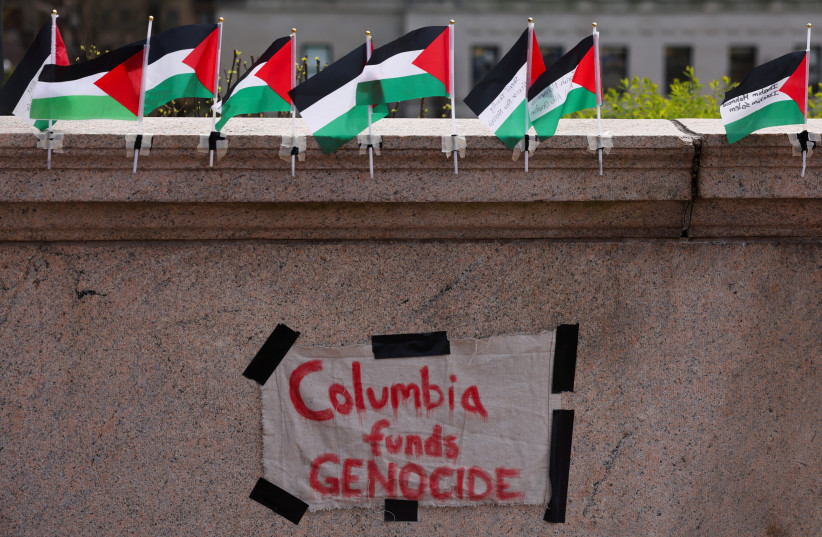As we approach Yom HaShoah (Holocaust Remembrance Day), which begins at sundown on May 5 and concludes at nightfall on May 6, we pause and remember the six million Jews systematically murdered by Nazi Germany during the Holocaust.
The Shoah, defined in Hebrew as “utter destruction” and the standard Hebrew term for Holocaust, was a horrific event that shattered Jewish communities across Europe and forever altered the course of history. The establishment of Israel in 1948, a safe haven for the Jewish people, served as a powerful symbol of resilience in the face of barbarity.
Yet, the dream of “Never Again” remains perpetually under threat and we are finding that “Never Again is Now.” Sadly, history warns us that the seeds of hate sown in the past can easily germinate in the present.
This year, Yom HaShoah takes on more meaning than ever as Jews throughout the world are reeling and grieving after the October 7 massacre along the Gaza border in Israel. Here in the United States, antisemitic incidents have skyrocketed 360% since the attack, according to the Anti-Defamation League. Underscoring this alarming trend, the ADL has also reported that almost three-fourths (73%) of Jewish college students have experienced or witnessed some form of antisemitism since the beginning of the 2023-2024 school year.
Not only did these incidents include violent attacks, vandalism, harassment and the placement of swastikas, there was a dramatic increase in antisemitic propaganda and tropes reminiscent of those found in Europe in the 1920s and 1930s, which helped create the climate for the Holocaust. Just like Europe over 75 years ago, we will find today that silence and apathy lead to complicity.

Palm Beach County is home to approximately 100 Holocaust survivors, and as that number continues to dwindle here and across the world, as do the firsthand accounts of unimaginable horror. Their central message, “Don’t Be Silent,” becomes a sacred charge to all of us as we face the perfect storm of war, worldwide antisemitism and an increase in Holocaust deniers.
Despite such dire news and troubling historic parallels, young Jews are mobilizing and seeking guidance on how to respond and protect their heritage. The popularity of international programs like the March of the Living, an annual program which brings students and survivors to Poland and Israel to study the history of the Holocaust and to examine the roots of prejudice, intolerance and hatred, is a testament to this eagerness.
SO HOW can we empower the next generation of Jewish citizens to stand up against hate, safely and effectively? The answer is up to us:
1. Expand educational programs.
They can connect young people directly with Holocaust survivors. We must advocate for the creation of programs in middle schools, high schools and colleges that integrate survivor testimonies into the curriculum. This firsthand contact can be a powerful way for young people to learn about the Holocaust and the importance of fighting against hate.
The Jewish Federation of South Palm Beach County offers The March of the Living and “From March to Miriam,” two intergenerational, year-long programs connecting local Holocaust survivors and students. From March to Miriam nurtures these relationships through monthly visits, weekly phone calls and in-person meetings, and serves as an example of how communities can foster educational opportunities with survivors.
2. Build Bridges.
Teaching young people how to effectively engage with school administration in cases of antisemitism is imperative. Whether it is providing them with resources or knowledge about their rights, this know-how is crucial.
The most powerful act of resistance is togetherness. Supporting safe community spaces such as synagogues, camps and student-led organizations, like Hillel and Chabad on college campuses, provides the opportunity for young Jews to feel the power of solidarity.
3. Experience Israel firsthand.
For many young Jews, experiencing Israel firsthand can be a transformative way to connect with their heritage and bolster their solidarity. There are many organizations that offer safe travel programs to Israel for young adults. The Jewish Federation of South Palm Beach County, along with federations across the country offer immersive, educational programs that connect their Jewish communities to Israel, and support world Jewry.
YOM HASHOAH is a call to action. We must never forget the pain of the Holocaust, and we must use this knowledge to actively fight against hate in all its forms. By investing in education, encouraging activism and fostering a strong sense of Jewish identity, we can empower the next generation to build a future where “Never Again” truly holds meaning.
Matt Levin is president & CEO at the Jewish Federation of South Palm Beach County, Florida, and Roneet Edrich is its associate vice president of planning and Holocaust education.
